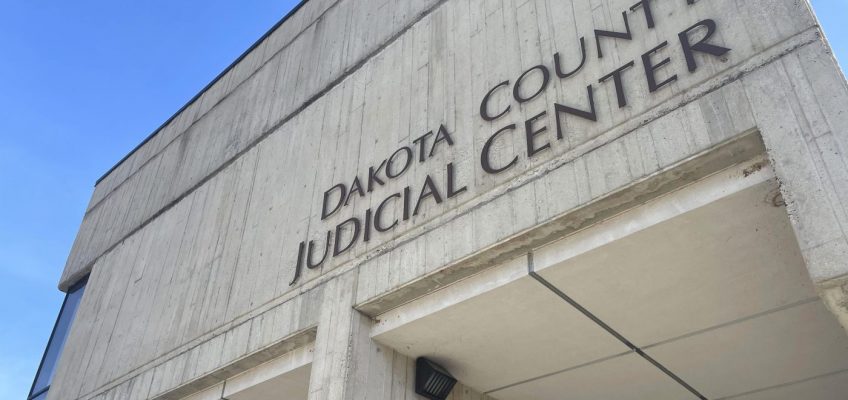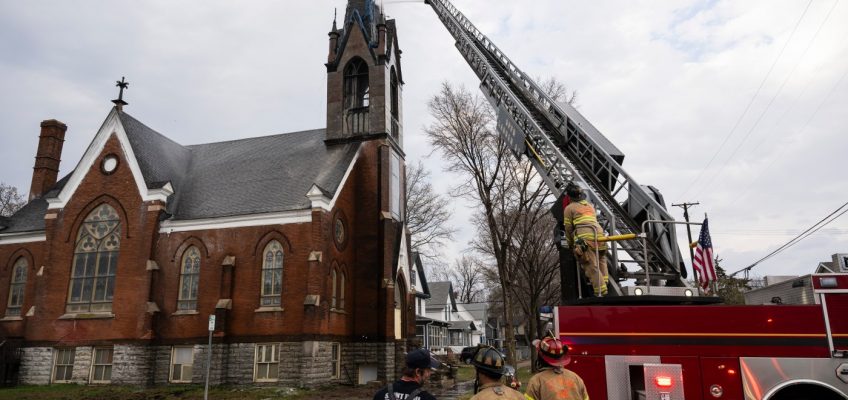Today is Friday, April 18, the 108th day of 2025. There are 257 days left in the year.
Today in history:
On April 18, 1906, the deadliest earthquake in U.S. history struck San Francisco, followed by raging fires across the city. More than 3,000 people are believed to have been killed by the quake, which was estimated to have reached as high as 8.3 magnitude on the Richter scale.
Also on this date:
In 1775, Paul Revere began his famous ride from Charlestown to Lexington, Massachusetts, warning colonists that British Regular troops were approaching.
Related Articles
Today in History: April 17, the Bay of Pigs Invasion
Fort Benning takes back its old name, but to honor a different soldier
The Oklahoma City bombing was 30 years ago. Some survivors worry America didn’t learn the lesson
Today in History: April 16, the Virginia Tech shooting
Today in History: April 15, the Titanic sinks in the North Atlantic
In 1942, in the first World War II attack on the Japanese mainland, 16 U.S. Army Air Force B-25 bombers conducted an air raid, led by Lt. Col. James Doolittle, over Tokyo and several other Japanese cities.
In 1955, physicist Albert Einstein died in Princeton, New Jersey, at age 76.
In 1978, the Senate approved the Panama Canal Treaty, providing for the complete turnover of control of the waterway to Panama on the last day of 1999.
In 1983, 63 people, including 17 Americans, were killed at the U.S. Embassy in Beirut, Lebanon, by a suicide bomber driving a van laden with explosives.
In 2015, a ship carrying migrants from Africa sank in the Mediterranean off Libya. As many as 700 people are believed to have drowned.
In 2016, “Hamilton,” Lin-Manuel Miranda’s hip-hop stage biography of America’s first treasury secretary, won the Pulitzer Prize for drama.
In 2019, the final report from special counsel Robert Mueller’s Russia investigation was made public. It outlined Russian interference in the 2016 presidential election but “did not establish that members of the Trump Campaign conspired or coordinated with the Russian government in its election interference activities.”
In 2023, Fox and Dominion Voting Systems reached a $787.5 million settlement in the voting machine company’s defamation lawsuit, averting a trial in a case that exposed how the top-rated network promoted falsehoods regarding the 2020 presidential election.
Today’s Birthdays:
Actor Hayley Mills is 79.
Actor James Woods is 78.
Actor Rick Moranis is 72.
Actor Eric Roberts is 69.
Journalist-author Susan Faludi is 66.
Actor Jane Leeves is 64.
Ventriloquist-comedian Jeff Dunham is 63.
Talk show host Conan O’Brien is 62.
Actor Eric McCormack is 62.
Actor Maria Bello is 58.
Football Hall of Famer Willie Roaf is 55.
Actor David Tennant is 54.
Filmmaker Eli Roth is 53.
Football Hall of Famer Derrick Brooks is 52.
Filmmaker Edgar Wright is 51.
Actor Melissa Joan Hart is 49.
Reality TV star Kourtney Kardashian is 46.
Former MLB All-Star Miguel Cabrera is 42.
Actor America Ferrera is 41.
Actor Vanessa Kirby is 37.
Actor Alia Shawkat is 36.




